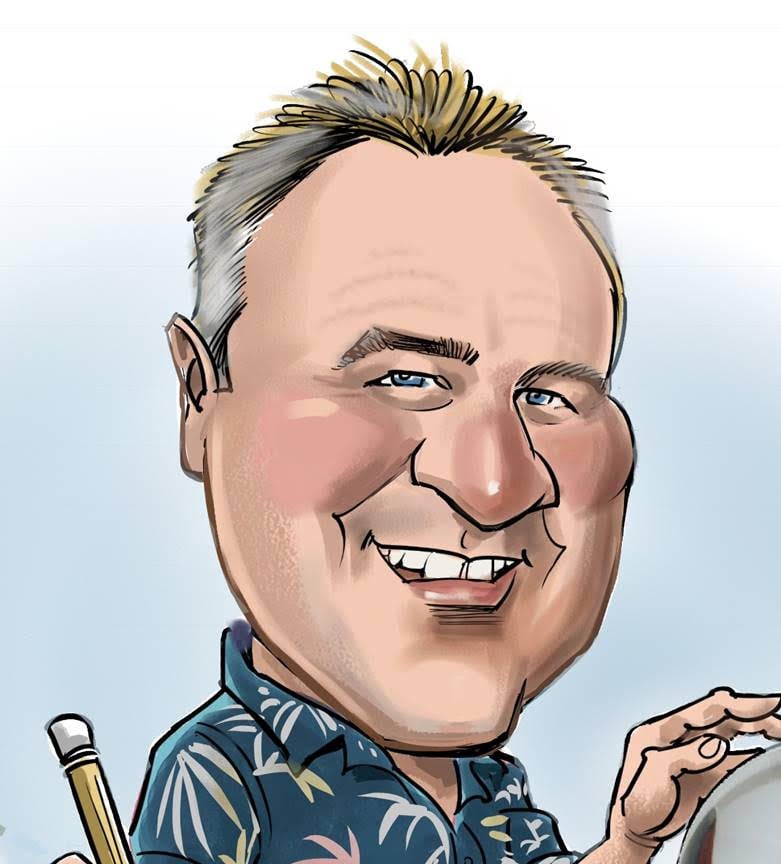Profit-focused accounting is about storytelling. But what kind of storyteller do you want to be?
Everyone loves a good story. As profit-focused accountants, we tell our clients stories based on the non-financial drivers that make most sense to them. The idea is to track things like revenue per producer or utilization and then help clients figure out how to maximize profit by improving the things that are in their control: Do they need to find more business? Do they need to hire more staff? Do they need additional training?
But when it comes time to discuss cash flow, forecasting, or pipeline, no one wants to tell their client a horror story or a tragedy. (To be honest, we don’t want to make them sit through a snoozer either. If they think of our meetings as naptime, that’s when they start to cancel.)
As financial advisers, the numbers aren’t up to us. Marketing, sales, operations – that’s all their domain. In a small business, it’s often the owners themselves filling all those roles, which can lead to some tough conversations when they miss the mark. So what do we do?
 I posed that question to entrepreneur and advisor David C. Baker in a recent podcast episode who, as an author of six books (including Secret Tradecraft of Elite Advisors), has wrestled with it at the highest levels.
I posed that question to entrepreneur and advisor David C. Baker in a recent podcast episode who, as an author of six books (including Secret Tradecraft of Elite Advisors), has wrestled with it at the highest levels.
For David, an advisor’s first job is “to figure out how a client processes information and then adapt it in a way that makes sense so that they can get excited about it.”
“Mine is sort of macabre,” David acknowledges. “I just think ‘months to live.’ I add up what’s in the bank, what’s in savings, and what’s in accounts receivable. I divide that by my monthly nut, and I say, ‘Okay, I’ve got nine months to live.’ Then I track that.”
That approach makes a lot of sense when you’re working with an owner who doesn’t have a lot of financial experience. If the metric stays in the same ballpark, it’s smooth sailing. But if something goes wrong, then they need to dig deeper.
Some clients come to us when it’s “please help!” time: they see their ‘months to zero’ start to slip and they don’t know how to reverse it. Other clients are doing just fine, but they want to take more ownership. Other times, as David notes, “They meet with their financial planner and realize, ‘Oh, we’re going to need a little more money in order to retire at 83. Let’s fix this now.’”
But regardless of the stage of their journey, clients can end up seeing us as the problem or the solution, when really, we’re the messenger. And if they have that mindset, it might be all golden for a while – until it’s not.
Everyone says they want a straight-forward advisor who doesn’t sugarcoat the truth, but when it comes down to it, there’s always the risk of being seen as the bad guy. And who wants to keep a bad guy on payroll?
How do we navigate that challenge?
“I’m Kramer from Seinfeld,” David says. “Not all babies are cute. Whatever it is, I’m going to be honest about it. As much as I hate when a client is disappointed in me, I cannot live with myself if I am not having a candid, honest, transparent conversation with them.”
David’s Seinfeld analogy gets at the heart of the issue: The owner can feel like the proud parent to their business, and who wants to hear that their baby is ugly? As awkward as it is, the advisor’s job is to identify problems and suggest solutions, not offer superficial compliments. But they also can’t execute every solution. It’s the owners’ baby, and they have to take charge of it.
Another way to think of the client-advisor dynamic, David suggests, is in terms of a patient-doctor relationship: The advisor can diagnose a problem, but it’s the client who has to undergo the treatment. In order to ensure that they swallow tough medicine, communication styles matter. You want your doctor to be truthful but, when they deliver bad news, a little bedside manner goes a long way.
Every advisor will have their own style that they will adapt to each client and that will evolve over time.
Even a guy like David, who describes his style as “get off your ass and do it,” can change: “I’ve always been ruthless but, more recently, I’ve been kind, too. I’m no longer Simon Cowell.” (As long as no one is singing to their clients, we should all be fine.)
With six non-fiction books under his belt, David is now off to write his novel – “The first novel with bullet points,” he promises. I told him if there’s a villain named Jody Grunden, I won’t be offended.
.png?width=120&height=77&name=Summit-Virtual-CFO_color_rgb%20(1).png)














